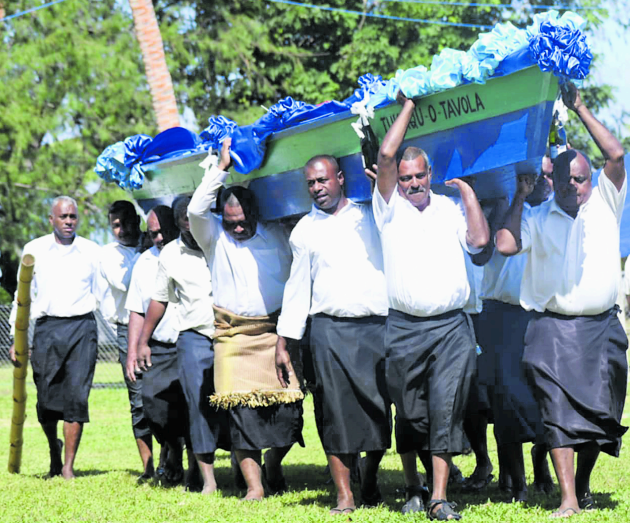Among the many traditional tributes presented during the installation of Ratu Tevita Uluilakeba Mara as Turaga na Tui Nayau, Tui Lau, and Sau ni Vanua ko Lau, one stood out – not just for its craftsmanship or contents, but for its name.
The vessel, sent from the people of Rewa under the leadership of Marama Roko Tui Dreketi Ro Teimumu Kepa, bore the name Tukaqu ‘o Tavola.
More than a ceremonial offering, this gift carried deep emotional and cultural weight, a reminder of shared histories, personal ties, and enduring chiefly bonds.
Tavola, the man after whom the boat is named, was a familiar figure in Nukutubu Village, Rewa – home to the Mataisau, Fiji’s traditional craftsmen.
He was known for his piercing gaze, his ever-present walking stick, and his fiery expressions when displeased. But beneath his gruff exterior was a guardian, a protector of children along the riverside, whose quiet vigilance left a lasting impression on generations.
More than a village elder, Tavola was a close companion to the late Gone Turaga Bale, na Roko Tui Dreketi – the maternal grandfather of Ratu Tevita.
His presence was woven into the rhythm of chiefly life, remembered not for rank or title, but for the unwavering care and loyalty he offered.
To name the boat Tukaqu ‘o Tavola was a gesture of rare personal significance.
For Ro Teimumu, the Roko Tui Dreketi, the newly installed high chief is not merely a traditional leader – he is the son of her elder sister, a child she helped raise and guide.
The gift, then, is not only political, but deeply maternal.
The boat’s arrival in Lakeba is as much a spiritual homecoming as it is a cultural exchange.
Laden with gifts, it carries more than goods – it brings a message: that the strength of vanua lies in the stories we carry, the guardians we remember, and the bonds we honour.
As Tavola once watched over the children of Rewa, this vessel now stands as a symbol of that same guardianship, passed on from one generation to the next.
And in that gesture, the legacy of both protector and chiefly kin lives on – steady, enduring, and still watching.



